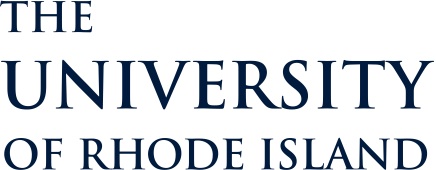Newswise — In a year when women's innate science and math ability or lack of it is being publicly debated, Yana Reshetnyak, an assistant professor of physics at the University of Rhode Island, may have discovered a way to stop cancer cell growth without harming the healthy cells that surround them.
This month, the Department of Defense granted Reshetnyak a three year $323,000 New Investigator Award to support her prostate cancer research. The URI scientist's approach is not restricted to the treatment of prostate cancer, and could provide a new concept for drugs and drug delivery in the treatment of a variety of cancers.
Reviewers of her proposal, mostly physicians, were ecstatic with praise: "This proposal has a number of strengths. The concept being developed is outstanding in its novelty and innovation and potentially represents a new paradigm for cancer therapy."
Normal cells maintain a pH of 7.4 with little variation. Cancer cells, on the other hand, expand a great deal of energy as they rapidly proliferate, pumping protons outside and creating an extracellular pH rate of 5.5 to 6.5. (The lower the number, the higher the acidity.)
The URI biophysicist's approach is to tether phalloidin, a toxin taken from a toadstool, to a membrane peptide and deliver it intercellularly to cancerous tumors. The peptide can translocate phalloidin through the membrane inside cells only at a low pH, as a result the phalloidin will seek out and destroy the cancer cells but it would not be translocated inside the healthy cells.
"The major motivation of my research is to understand the fundamental principles of biological molecules organization and their function," the URI scientist says. "Fundamental studies of peptide interaction with cell membrane led us to the discovery of novel delivery agent "molecular nanosyringe," which can deliver and "inject" diagnostic or therapeutic agents specifically to cancer cells. Since we know the mechanism of delivery and translocation, we believe that we would be able to tune the nanosyringe properties and engineer a novel class of therapeutic and diagnostic agents. I believe that biophysicists will make breakthroughs in biomedical sciences."
Reshetnyak grew up and was educated in Russia. She completed two postdoctoral fellowships, one in cancer biology at the University of North Texas and one in membrane biophysics at Yale University.
She is one of five talented women scientists URI recruited as ADVANCE Faculty Fellows, an effort to increase the number of women faculty in the science, technology, engineering, and mathematics fields. Women are underrepresented in these areas, representing 22 percent of the science and engineering workforce and less than 20 percent of science and engineering faculty in four-year institutions. URI's program is funded by a five-year $3.5 million National Science Foundation ADVANCE grant, which was awarded in 2003.
Reshetnyak works side by side with her husband, Oleg Andreev, a research assistant professor in URI's Physics Department and co-investigator on the grant.
Donald Engelman, a professor of molecular biophysics and biochemistry at Yale University, will be a consultant and collaborator on the project. The peptide that Reshetnyak will use was discovered in his lab in 1997. "Your recent elegant experiments with cancer cells demonstrated that the peptide can deliver a range of molecules into cells in a pH-dependent manner," Engelman said in a supporting letter, noting the URI's scientist's "intriguing results" using low pH "may lead to the development of novel tumor specific anti-cancer drugs."
Barry Stein, surgeon-in-chief, Department of Urology at Rhode Island Hospital and professor at Brown University, is another collaborator. He noted that Reshetnyak's basic science study of peptide insertion in cellular membranes in acidic tumor might lead to important clinical applications.
Reshetnyak is also associated with the IdeA Networks of Biomedical Research Excellence at URI and has access to its equipment. The $25-million program, based at URI's College of Pharmacy, is funded by an arm of the National Institutes of Health for biomedical research in Rhode Island.
